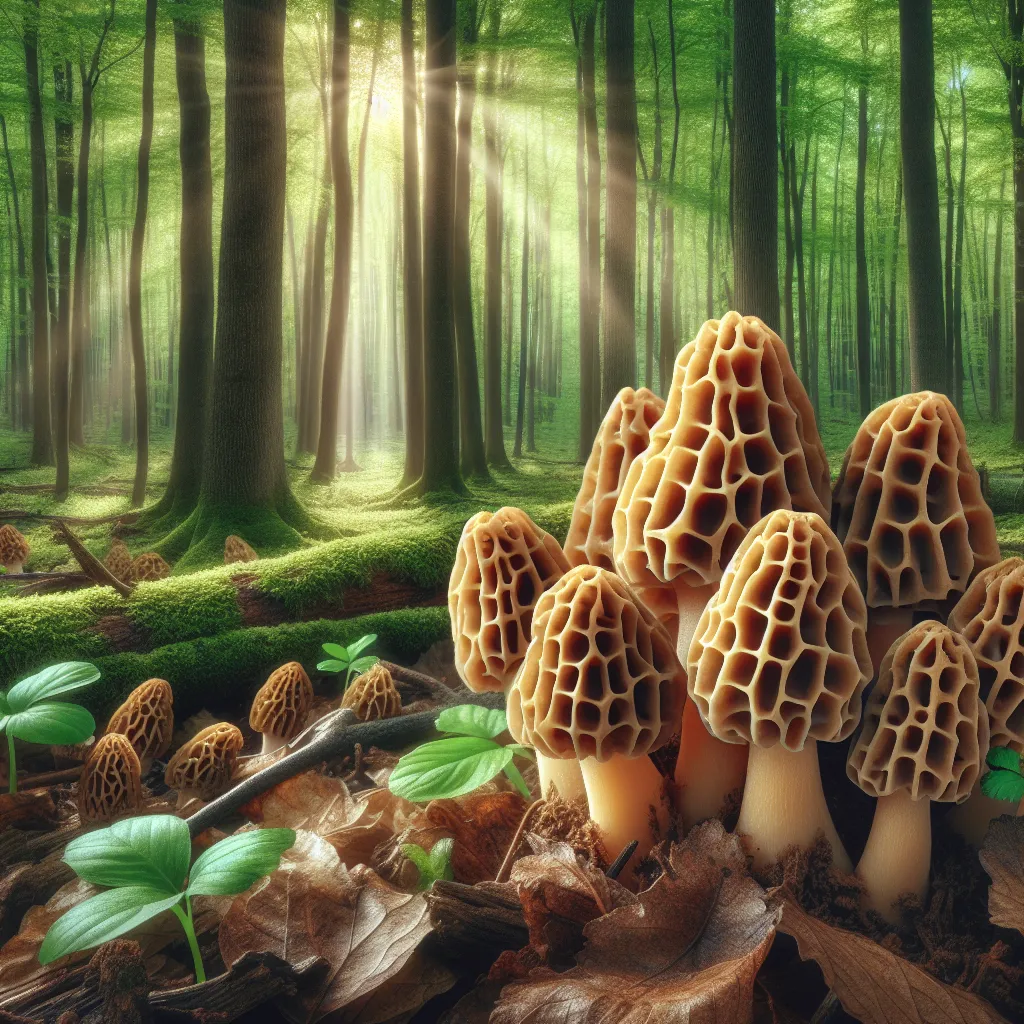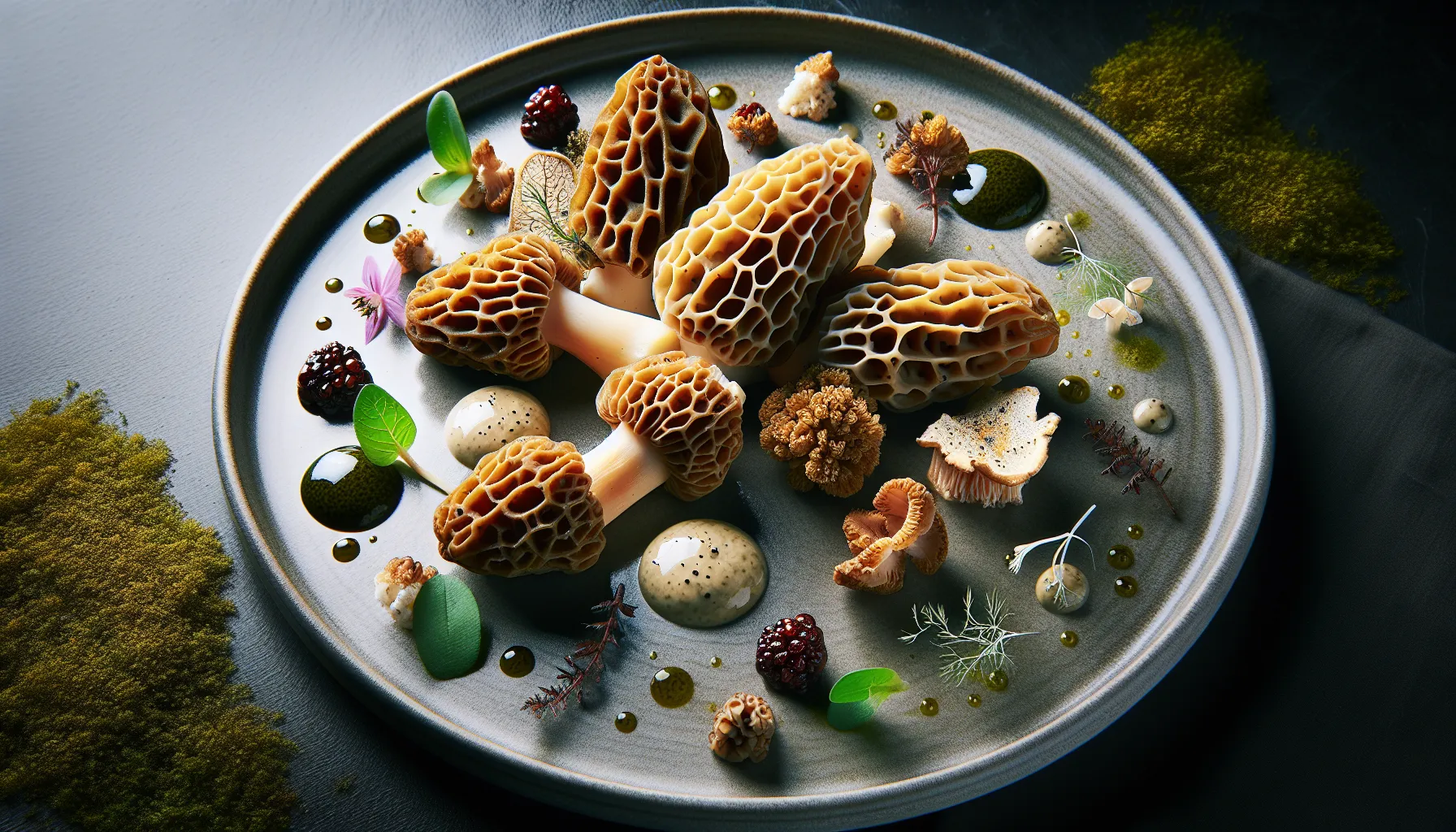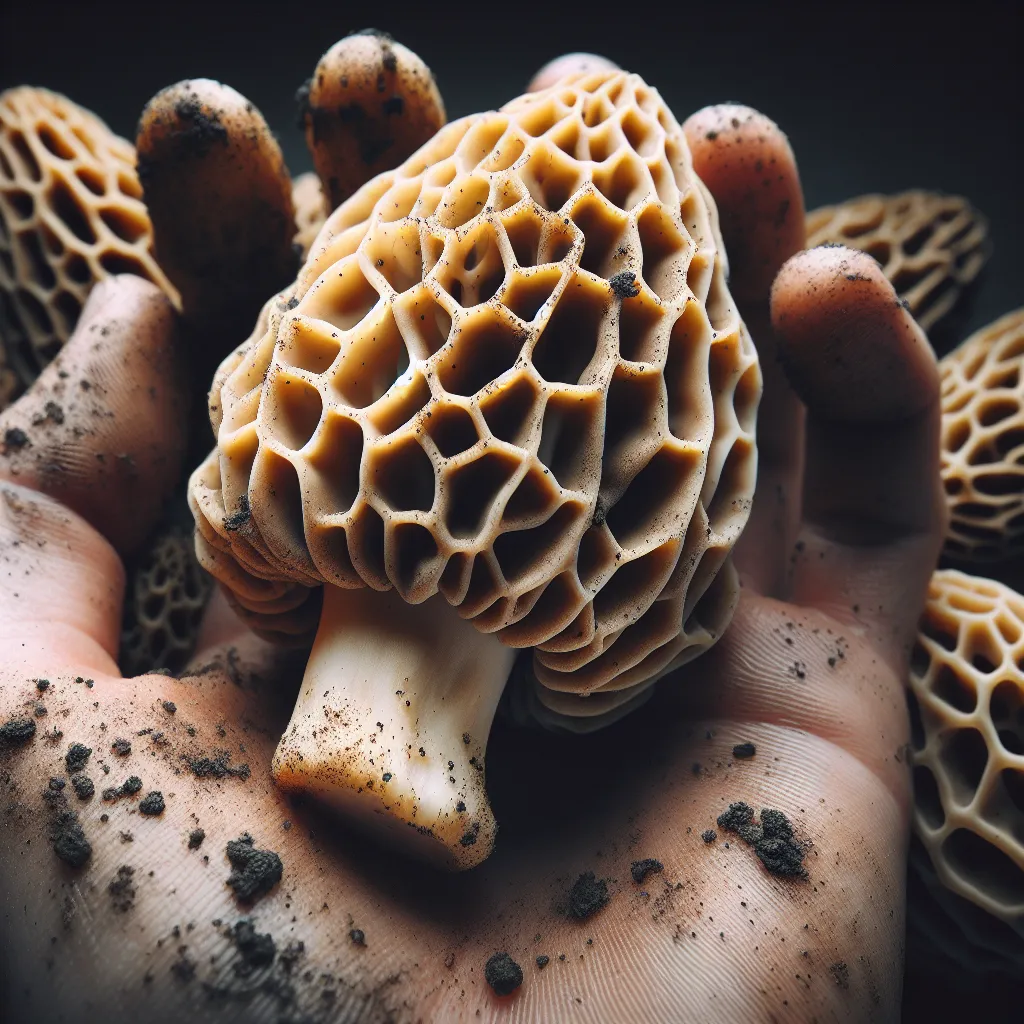Morel mushrooms are nature’s hidden gems, often sought after by culinary enthusiasts and health-conscious individuals alike. These distinctive fungi, with their honeycomb-like appearance, not just add an earthy flavor to dishes but also come packed with a range of health benefits. In this comprehensive look into the world of morel mushrooms, we’ll explore their nutritional profile, health advantages, and precautions to keep in mind while foraging and preparing these wild delicacies.
What Are Morel Mushrooms?
Unlike the usual mushrooms that one might find in a grocery store, like portabella, oyster, or shiitake, morels are most commonly harvested from the wild. This makes them quite rare and, as a result, rather expensive. Morel mushrooms boast an earthy and savory flavor, making them a sought-after ingredient in gourmet cooking.

Hunting and Harvesting Tips
For those with a keen interest in foraging, morel mushroom hunting can be quite the adventure. However, it’s crucial to differentiate between true morels, which are safe to eat, and their toxic lookalikes. Enthusiasts often rely on their knowledge, resources, and sometimes, the expertise of mycologists to ensure they are picking the correct species.
When harvesting, it’s important to do so sustainably to allow the mushrooms to grow back the following season. A gentle pluck from the stem is the recommended method, similar to picking a flower.
Nutritional Profile of Morel Mushrooms
Morel mushrooms are not just a gourmet’s delight but also a nutrient-dense food. Here are some of the key nutrients found in morels:
Iron
Iron is an essential mineral that helps in transporting oxygen throughout the body. A 100-gram serving of morel mushrooms contains an impressive 12.2 milligrams of iron, meeting the full daily requirement for men and over half for women. This makes morels an excellent food source for those who may be at risk of iron deficiency, such as pregnant women and individuals with heavy periods.
Vitamin D
Mushrooms are one of the rare plant-based sources of vitamin D, and morels are no exception. They contain 136 international units of vitamin D per 100 grams, contributing to a significant part of the daily requirement. Vitamin D is crucial for bone health and immune function.
Low Calorie
In line with the recommendations of the American Heart Association for healthy eating, morel mushrooms are low in calories. A 100-gram serving contains just 31 calories, making them an excellent addition to meals without significantly affecting the calorie count.

Health Benefits of Morel Mushrooms
Incorporating morel mushrooms into your diet can offer numerous health benefits:
Heart Health
As a low-fat, plant-based food, morels are beneficial for heart health. They can help lower cholesterol and provide a range of nutrients without the added fat content associated with meat.
Energy Boost
The absence of a high glucose content in morel mushrooms means that they can provide energy without the risk of a sugar crash, making them an excellent dietary choice for maintaining steady energy levels.
Digestive Health
Morel mushrooms contain dietary fiber, which promotes good digestive health and can aid in preventing constipation and maintaining a healthy gut.
Precautions When Preparing Morel Mushrooms
Before indulging in the delectable taste of morel mushrooms, it’s important to take certain precautions:
- Always confirm the identity of the mushrooms. If you’re unsure, seek guidance from experienced foragers or local experts.
- Store morel mushrooms properly. Avoid washing them before refrigeration to prevent mold growth.
- Cook thoroughly. Morel mushrooms should be fully cooked to avoid any potential health risks associated with undercooked wild mushrooms.

Cooking Morel Mushrooms
Cooking morel mushrooms is a simple process. They should be washed just before cooking and then dried thoroughly. Soak them in warm salted water to help loosen any dirt or debris trapped under their caps. Cooking them for about 15 minutes or until tender will ensure they are safe to consume.
Foraging Your Own Morels
With the right knowledge and preparation, foraging for morel mushrooms can be a rewarding experience. Not only does it connect you with nature, but it also allows you to add a nutritious and delicious ingredient to your diet. Remember to follow sustainable harvesting practices to enjoy morels for years to come.
For those interested in diving deeper into the world of mycology and morel mushrooms, consider visiting resources like the Mushroom Appreciation website for detailed guides on mushroom foraging or the MycoKey for identifying different mushroom species.
Morel mushrooms are a true testament to the wonders of nature. By understanding their nutritional benefits, health implications, and safe foraging techniques, we can responsibly enjoy these rare and nutritious fungi. Whether you’re a seasoned forager or simply a mushroom aficionado, the allure of the morel mushroom is undeniable.
